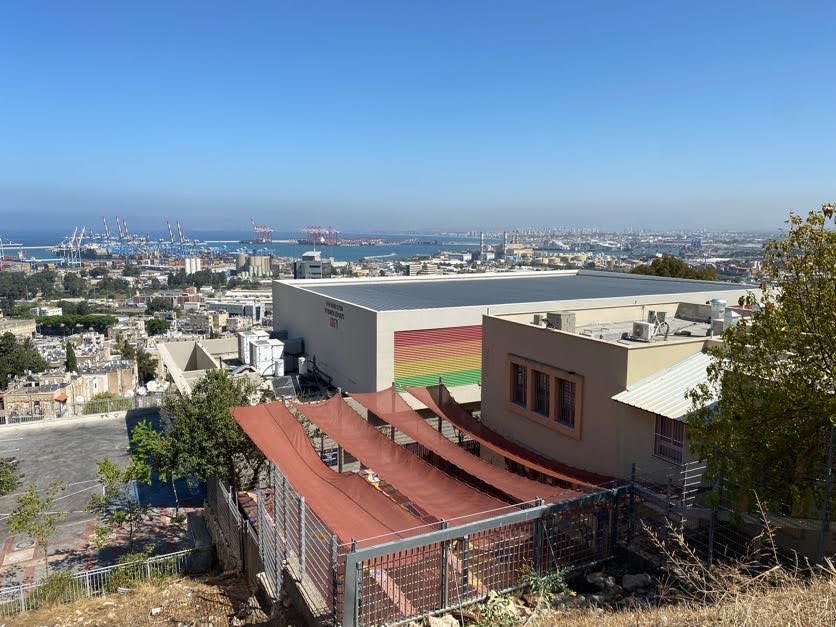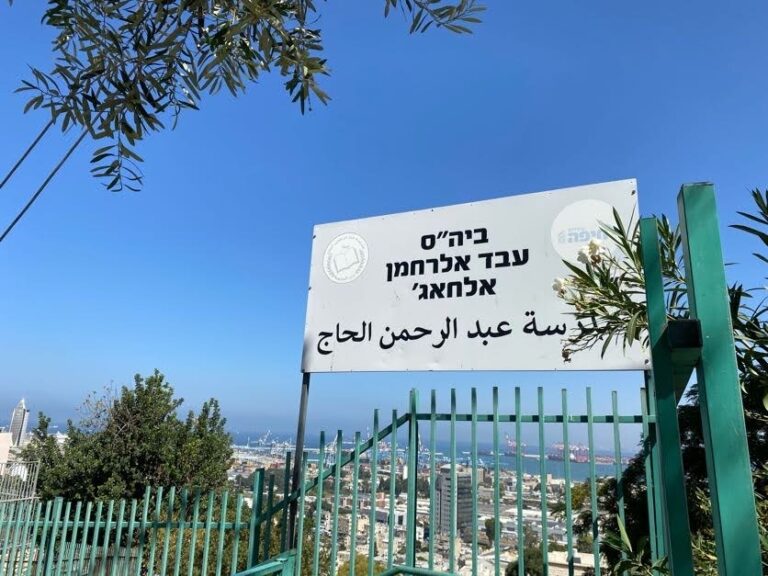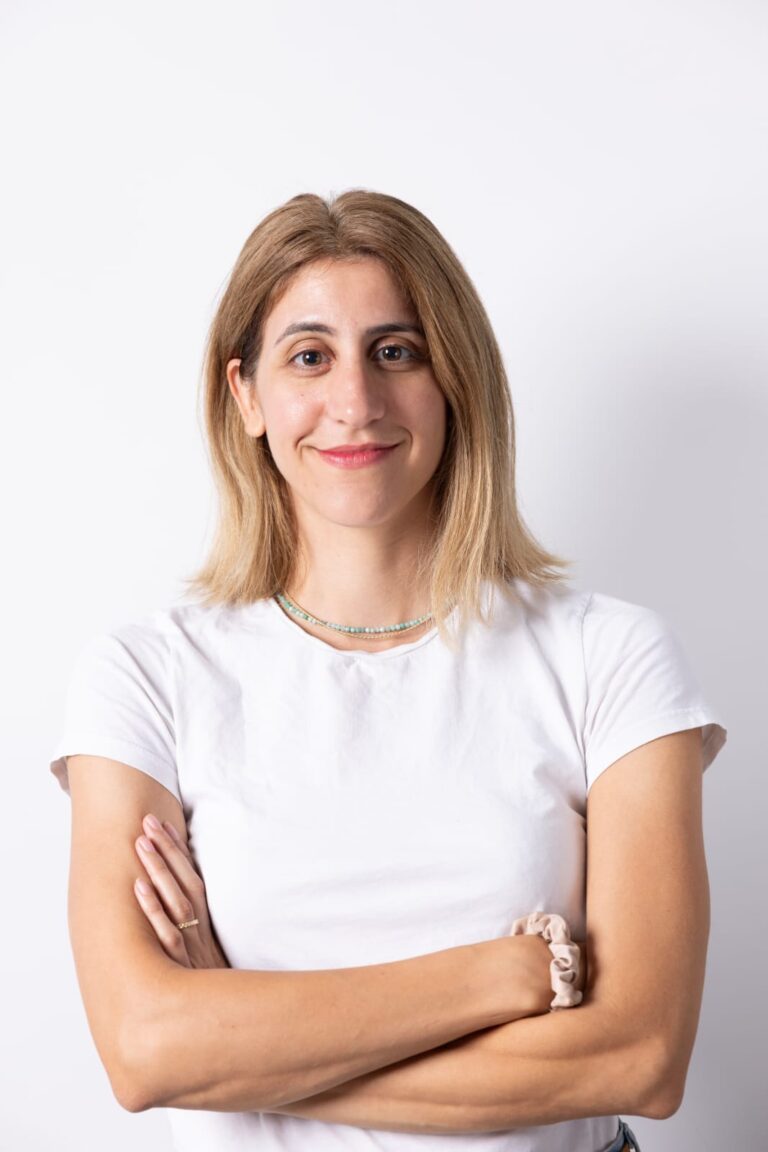
Twenty four hours after the murder of Atef Abu Kalib on Wednesday morning, the main street in the Arab neighborhood of Khalisa, Haifa is nearly empty of residents. Only a few police cars and dozens of border police officers are out showing their presence. One patrol car stands in front of the local health clinic, which closed early Wednesday night due to gunfire nearby, raising concerns for the safety of the clinic's staff.
Residents in the neighborhood are afraid to speak out, and those who are willing to be interviewed often refuse to disclose their names due to safety concerns. One resident, an educator from the neighborhood, expressed reluctance: “I'm sorry, I don't want to be interviewed. A religious worker spoke against crime in the Arab sector two days ago, and hours later, he was shot. So, I'm sorry, but I can't reveal my name.”
The Ministry of Education chose to transition neighborhood schools to remote learning and close the local community center. In the statement the ministry released, it attributed the decision to “the sensitive and complex situation and … responsibility to ensure the safety and security of the children and students in the neighborhood.”
Two students from the closed Abed al-Rahman al-Hajj School, which serves 300 students from first through eighth grade, were seen carrying a soccer ball on their way to buy groceries. Two Border Police officers were at the store buying small cardboard boxes of soft drinks. “It's good that they're here,” the shopkeeper told Davar. “We need more forces.”
"Every morning, you walk through the neighborhood, pointing to one house after another, saying, 'This one was murdered, that one was murdered, this one was murdered,'" a resident of the neighborhood told Davar. "The state is not doing its job, and the criminals don't fear getting caught, so they act with impunity."
In 2017, Muhammad Shinawi murdered Guy Kafri and attempted to murder Yehiel Iluz in the Khalisa neighborhood. He was eventually apprehended.
"He was stalking the neighborhood," a resident said. “[The police] turned the neighborhood upside down. They conducted door-to-door searches, brought in people for questioning because they found their DNA on an old cigarette near the crime scene. Within two days, they found the murderer. This is the only case in recent years where a neighborhood-related murder was solved. When the police want to, they can."
"The situation is very frightening, and we also have a responsibility, it's not just the police,” the grocery store owner said. “Khalisa is full of good people, professors, designers, doctors. All the recent murder victims are from the same street, in front of the school. There used to be chaos here, but recently it was quiet, and now it's very, very scary."
On Thursday, the Ministry of Education extended the closure of neighborhood schools for an additional day. The decision is motivated by concerns for the safety of the children and appears to be a form of protest, though it's unclear against whom. Yoav, a long-time resident of the neighborhood, expressed his support the decision, stating, "It's an educational act more than a regular school day for the students. The message to the children is that something terrible happened here."

Simon Yifrah, head of the Community Centers Network in Neve Yosef, agrees with the decision not to open the neighborhood community center. “The situation in the neighborhood is known and sensitive. This is a security recommendation, and that's why I accept it. The management of the Khalisa community center will come to Neve Yosef and work from there,” he told the Haipo news website.
On the other hand, Sally Abad, who heads the City Majority list for the city council, expressed her shock at the decision.
“I'm not surprised by the city's bad decisions, but this is a new level of disconnection, she said. "The municipality doesn't look at the root of the problem. The students need more frameworks and good schools; that's real security, not two days where they can't go out on the streets.”

"At the beginning of May, they burned the soccer field in the neighborhood, and throughout the summer months, they did nothing,” she continued. “Only at the end of August did they approve a budget for renovation, and that was after we protested in front of the municipality. What is needed here is not just cameras and enforcement; we need to invest in communities and address the underlying issues.”
The idea of closing schools due to concerns for students' safety is not unique to Haifa. In June 2020, after several murder cases in Ramle, the municipality decided to close schools in the Arab Jawarish neighborhood.
Education Minister Yoav Kisch declined to comment on the matter, stating that these are pedagogical decisions of the municipality and the school.
This article was translated from Hebrew by Leah Schwartz.






